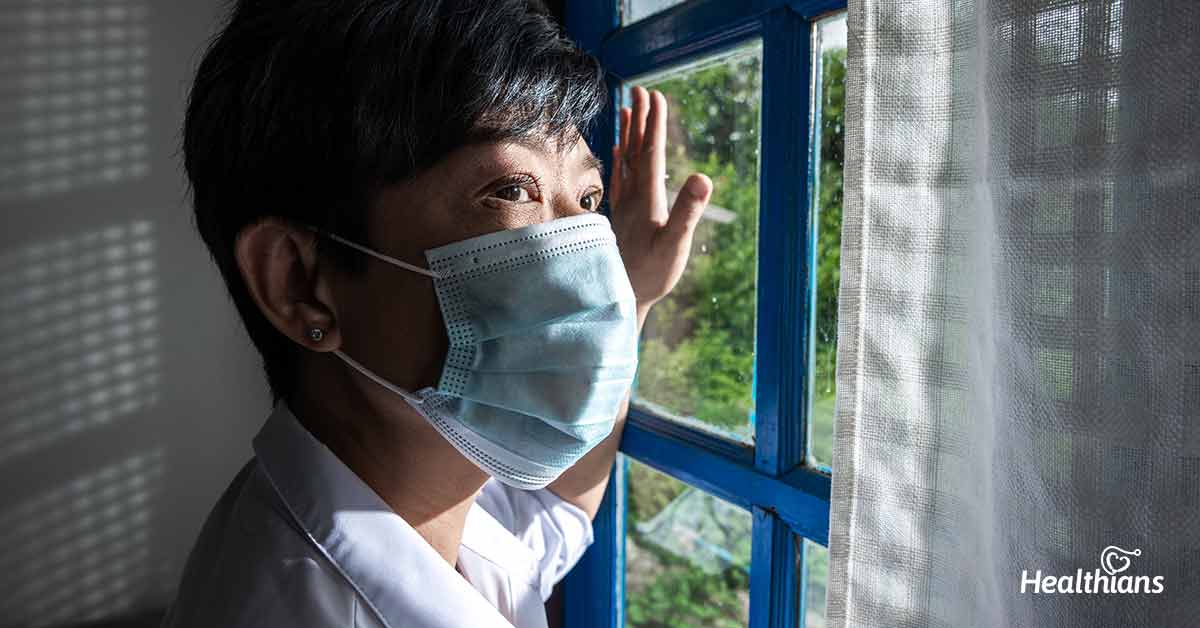Contributed by: Healthians Team
The past year has been a difficult year for most of us. There has never been a time like this before for our generation. Who hasn’t experienced anxiety? Who hasn’t wanted to retreat from the world? In a time of strict social distancing protocols, we’ve all been advised only to go out to address health problems, to attend to a vulnerable person, or to buy essential items.
As more cities and states across the country continue to relax pandemic guidelines, many of us are getting ready to return to work and looking forward to stepping out of homes once again. Yet, after spending months in lockdown, could we have developed agoraphobia-like symptoms? Our lingering concerns about stepping out after months or feeling less safe in public spaces out of proportion to the actual danger of the environment?
If you are wondering if the discomfort you experience is normal or has crossed a threshold, read on.
What is agoraphobia?
Agoraphobia is a type of anxiety disorder that commonly arises as a complication of panic disorder. It is characterized by moments of intense fear. It can have a significant impact on one’s quality of life.
Agoraphobics develop anxiety in situations where they feel powerless, out of control, trapped, or judged. Someone with agoraphobia may avoid many events and social interactions. The anxiety associated with agoraphobia can be paralyzing, causing people to feel afraid of daily activities like being in a store, riding public transportation, or being in crowds like at a sporting event or concert.
They may also dread circumstances or confined places that make them feel out of control, such as a trip with others where they don’t know anyone. Their thoughts can go to dark places and start weaving a never-ending stream of worrisome scenarios. When they are outside of the home, a feared event — or merely the concept of such a situation — creates panic or triggers panic attacks, which can make going out again seem like an insurmountable obstacle.
Signs and symptoms of agoraphobia
Agoraphobia is characterized by various psychological, physical, and social symptoms. An anxiety attack is characterized by physical symptoms that can be similar to those of a panic attack and may include:
- Racing heartbeat
- Shortness of breath
- Feeling hot and sweaty
- Chest pain
- Perspiration
- Dizziness
- Breathing quickly (hyperventilation)
- Ringing sensation in the ears (tinnitus)
Lifestyle changes to overcome pandemic-related Agoraphobia
- Exercise regularly – exercise can help relieve stress and tension and improve your mood
- Practice mental imagery of the scenario before facing it – it can help you better prepare for that situation
- Consume a healthy diet – a poor diet can make the symptoms of panic and anxiety worse
- Filter incoming information – decreasing the amount of time you’re spending on social media can alleviate some fears and anxieties and making certain activities more attainable
- Practice relaxation techniques – slowly expose yourself to the thing you’ve been avoiding while managing your anxiety
- Refrain from using drugs and alcohol – they may provide short-term relief, but in the long term, they can make symptoms worse
- Avoid caffeinated drinks such as tea, coffee, or cola – caffeine has a stimulant effect and can make your symptoms worse
- Practice deep breathing techniques – this will help to better endure anxiety by stopping the mind from sending stress signals to the body
When to seek help?
Consult a mental health expert if you feel that you can’t manage on your own. Agoraphobia is frequently treated using cognitive behavioral therapy (CBT), which teaches people how to connect their ideas, feelings, and behaviors. Antidepressants and anti-anxiety medicines are occasionally used in conjunction with CBT.
Your doctor may want to perform a physical exam and, in certain situations, blood tests to look for signs of any medical disorders that could be causing your symptoms. An overactive thyroid gland (hyperthyroidism), for example, can occasionally produce symptoms that are similar to those of a panic attack.




